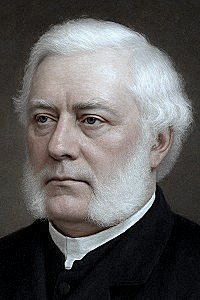Introduction

(1814–1878)
Words: Author unknown (O Deus, ego amo te). Translated from Latin to English by Edward Caswall, Lyra Catholica 1849.
Music: St. Fulbert Henry J. Gauntlett, 1849 (🔊 pdf nwc).
Alternate Tunes:
- Flensburg Ludwig Spohr (1784–1859). Harmony by Joseph Barnby, 1867 (🔊 pdf nwc)
- Solomon from the air What Tho’ I Trace by George F. Handel (🔊 pdf nwc)
- St. Francis Xavier John Stainer, 1875 (🔊 pdf nwc)

(1805–1876)
National Portrait Gallery
